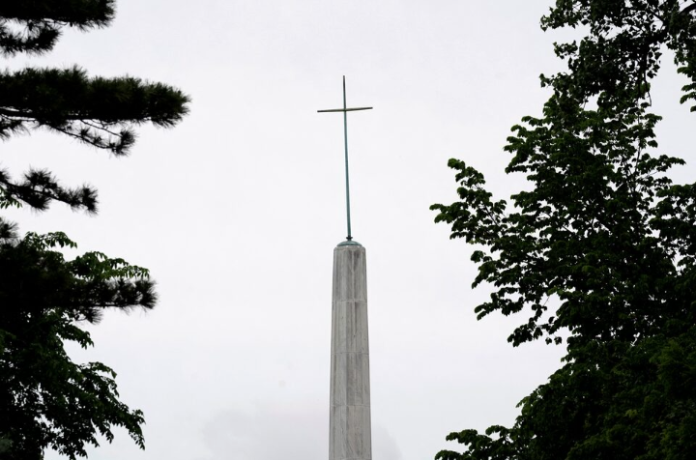In a major decision with national implications, the U.S. Supreme Court on Thursday found itself evenly split in a case that could have opened the door for the nation’s first taxpayer-funded religious charter school.
The 4-4 ruling, resulting from Justice Amy Coney Barrett’s recusal, left in place a lower court’s decision that blocked the establishment of St. Isidore of Seville Catholic Virtual School in Oklahoma. The school was a joint effort by the Catholic Archdiocese of Oklahoma City and the Diocese of Tulsa, aiming to offer faith-based virtual education from kindergarten through high school—entirely funded by public dollars.
The proposed school would have integrated religious teachings directly into its curriculum, setting a national precedent for religious institutions to receive state funding for public education. However, Oklahoma’s Supreme Court previously ruled that such a setup violated the Establishment Clause of the First Amendment, which bars government endorsement or funding of religion.
Justice Barrett, who once taught at Notre Dame Law School—the same institution representing the organizers of St. Isidore—did not provide a reason for her recusal. Without her, the Supreme Court was left with eight justices. A deadlocked court means the ruling of the lower court automatically stands, halting the school’s launch indefinitely.
Charter schools are publicly funded but independently run institutions. In Oklahoma, they are recognized as public schools and receive state funding. Opponents of the proposed religious charter school argued that allowing such a school to operate with state money would blur the lines between church and state. They also warned it could open the floodgates to taxpayer-funded religious indoctrination.
Patrick Elliott of the Freedom From Religion Foundation praised the outcome. “The creation of a Catholic public charter school clearly violated state law,” he said. “Public schools must be inclusive and open to all students, not rooted in religious doctrine.”
Oklahoma’s Republican Attorney General Gentner Drummond previously filed a lawsuit to block the school, asserting that state-funded religion contradicts both Oklahoma’s constitution and the values held by America’s founders.
Despite the legal pushback, the initiative received support from high-profile conservatives, including Oklahoma Governor Kevin Stitt and former President Donald Trump’s administration.

Advocates for St. Isidore argued the school was being unfairly discriminated against because of its religious identity, referencing past Supreme Court decisions that allowed public funds to support religious institutions under certain conditions. For instance, in 2017 and 2020, the Court ruled in favor of churches and private religious schools receiving public benefits and tax credits.
However, Chief Justice John Roberts hinted at the unique nature of this case, suggesting that creating a fully operational religious charter school with public funds may be a step too far. “This does strike me as a much more comprehensive involvement,” Roberts noted during April hearings.
While this decision blocks St. Isidore for now, the issue is far from settled. Legal experts suggest that the Supreme Court could revisit the matter in the future—especially if a similar case arises when all nine justices are present.
For now, the boundary between religion and public education remains intact—but the debate is far from over.



